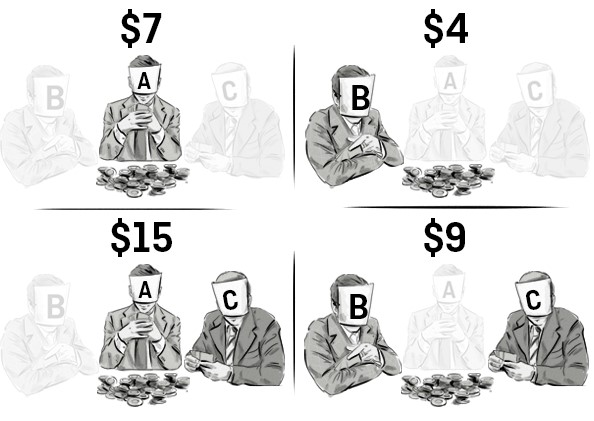
Project Details
Game theory and strategic interaction
Prof. Dr. Heiko Rauhut
PD Dr. Heinrich Nax
Lecture: Tuesdays, 10:15 – 12:00
Course outline:
This lecture gives an introduction to models of social interactions in the social sciences. A focus is on game theoretical models, actor models and models about micro-macro transitions. Typical examples and empirical findings from the social sciences are discussed.
Course Credits:
For BA students: The course is worth 4 ECTS credits. The course is not graded and is examined on a pass/fail basis.
For MA students: The course is worth 6 ECTS credits. The course is not graded and is examined on a pass/fail basis.
To receive credit, students are expected to read the literature, participate in group work and discussions during the lecture and pass the exam. The exam is written in the last session of the course. If the exam is not passed the course is failed. In this case, students are advised to take the course “Modellbildung” in the upcoming spring term 2020.
Core literature:
Diekmann, Andreas: Spieltheorie. Rowohlt 2009.
Further literature:
Dixit, Avinash K., and Susan Skeath. Games of Strategy. WW Norton & Company, 2015.
Braun, Norman & Gautschi, Thomas (2011), Rational Choice Theorie. Juventa; Weinheim, München.
Herbert Gintis (2000): Game Theory Evolving. Princeton, NJ.: Princeton University Press.
Ken Binmore (1992): Fun and Games. Lexington: Heath.
Eric Rasmusen (2000): Games and Information. 3.,veränderte Aufl., Oxford: Blackwell.
Camerer, Colin (2003): Behavioral Game Theory. Experiments in Strategic Interaction. Princeton: Princeton University Press.
Schelling, Thomas C.: Micromotives and macrobehavior. WW Norton & Company.
Course-relevant websites:
Syllabus
|
PART I: Introduction and Course credits |
|||
|
1 |
19.2.19 |
HR |
Introduction Course credits and introduction |
|
PART II: Game Theory |
|||
|
2 |
26.2.19 |
HH |
Practical exercise: Class room experiment on the beauty contest game Literature:
|
|
3 |
5.3.19 |
HH |
Cooperative vs noncooperative game theory Literature:
|
|
4 |
12.3.19 |
HH |
Non-cooperative game theory: Normal form, Best replies, Nash equilibrium Literature:
|
|
5 |
19.3.19 |
HH |
Non-cooperative game theory: dynamics, Sub-game perfection Literature:
|
|
6 |
26.3.19 |
HH |
Experimental game theory, Behavioral game theory, Learning in games Literature:
|
|
7 |
2.4.19 |
HR |
Cooperation and punishment: Class experiment and discussion Literature:
|
|
8 |
9.4.19 |
HH |
Bargaining, Markets
Literature:
|
|
PART III: Sociological applications and experiments |
|||
|
9 |
16.4.19 |
HR |
Cooperation and punishment: Experimental evidence Literature:
|
|
– |
23.4.19 |
|
|
|
10 |
30.4.19 |
HR |
Normative conflict Literature:
|
|
11 |
7.5.19 |
HR |
Lying, ignorance and social dynamics Literature:
|
|
12 |
14.5.19 |
HR |
Signaling Literature:
|
|
PART IV: Exam |
|||
|
13 |
21.5.19 |
HR/HH |
Questions & Answers, Discussion, further specialization |
|
14 |
28.5.19 |
|
Exam |
- Documents Download the documents related to this project here
Handout Lecture 1 Handout Lecture 2 Handout Lecture 3 Handout Lecture 4 Handout Lecture 5 Handout Lecture 6 Handout Lecture 8 Handout Lecture 9 Handout Lecture 7 Handout Lecture 10 Handout Lecture 11 Handout Lecture 12
- Category Lecture materials










